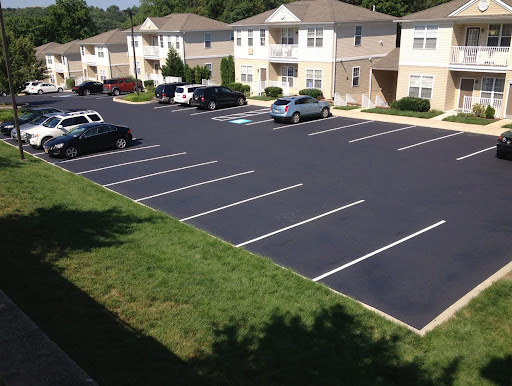- Unmasking Alligator Cracking: The Hidden Enemy of Asphalt Pavement
- Are Asphalt and Sealcoating Environmentally Friendly?
- Should I Repair My Potholes in Spring?
- 5 Important Questions You Should Ask Your Seal Coating Company
- How Does Snow Cause Potholes on Asphalt Roads?
- How Can Driveway Paving Add Value to Your Home?
- How Does Sealcoating Protect Driveways From Damage?
What is “Sealcoating?”

Asphalt is a common sight wherever you go. As any commercial seal coating maintenance company in Montgomery County, PA, can tell you: where there's asphalt, there's a risk of potholes, sinkholes, and cracks without proper maintenance. The last thing you want customers to see when they first pull up to your business is a parking lot filled with obstacles, but the good news is that doing proper maintenance on your asphalt will help keep your lots in good condition for years. Your parking lot and driveways experience a wide range of elements that cause the material to degrade. From the water, oil leaks, UV rays, and other chemicals reacting with your asphalt, damage can come from all different angles. For you to keep your asphalt looking pristine, your maintenance routine needs to be on point. A vital cornerstone of that should include regular sealcoating. But what is sealcoating, and how can it help protect your asphalt for the long haul?
What Goes into Sealcoating
In the simplest terms, sealcoating provides a layer of protection for your asphalt that blocks out the elements that cause it to degrade. Besides keeping the elements at bay, your freshly-sealcoated asphalt will feature a deep black finish that's eye-catching to your visitors. Sealcoats are typically composed of bituminous products or some variety of acrylics. Once liquified, the emulsion gets mixed with a combination of water, silica, sand, polymer additives, and a mix of fillers. Once applied, the protection that the sealcoating provides will help prolong the life of your asphalt. However, multiple critical factors go into effectively sealcoating your asphalt that you need to consider before reaching out to the professionals.
No Cars on The Freshly Sealcoated Asphalt
Now that you have applied the sealcoat in warm and dry conditions, you don't want all of that hard work to go to waste. Keep cars off your fresh and curing asphalt for at least 48 hours. Any sooner before it has the chance to fully cure and you will disrupt its ability to protect your asphalt.
Long-Term Benefits of Sealcoating
Taking the time to adequately protect your asphalt will provide you three significant benefits. The first is that your asphalt will have a layer of protection from water infiltration that causes the most long-term damage. The second benefit revolves around the visual aesthetics of your lot or driveway. A fresh sealcoating will help give your asphalt a visual boost, bringing deep dark black color that will help it stand out and give your customers and visitors an excellent first impression. The third benefit of sealcoating ties directly to extending your asphalt's overall lifespan. Completely repaving your asphalt is a costly project. Regularly sealcoating your driveway every three to five years not only boosts your asphalt's viability but also saves you money since you won't have to choose the more expensive repaving option. To find out how driveway and parking lot sealcoating maintenance can help people in the Greater Philadelphia area, give Superior Seal Coating a call today!